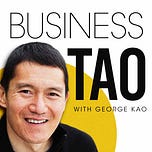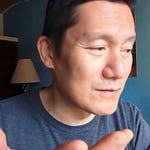I’ve been able to accomplish a lot in my business because I create even when I don’t feel like it — I work on a regular rhythm. (And I honestly don’t feel like it most of the time.)
Similarly, I’ve learned to rest myself before I’m tired… to rest on a regular rhythm, whether or not I feel like it.
**
Watch the video here:
https://www.facebook.com/watch/?v=1178024079226820
**
Several times I’ve nearly burned out. (Maybe I did and eventually recovered.) Painful experiences — emotional lows, lack of motivation, lack of hope, physical exhaustion — something I hope to help others prevent.
I now know how important it is — for health and for a sustainable business — to rest before I need to.
By the time I’m really tired, I’ve rested too late.
The more addictive our technologies, the harder it is to remember to take breaks.
So it’s more important than ever to make it a conscious practice of taking frequent breaks. To make resting a key discipline in our work.
The reason for our breaks isn’t just a physical one, it’s also to rest from the emotions and mental states of working: various degrees of tenseness.
Staying healthy — and growing strong — means to have a healthy rhythm of stretching (working) then relaxing (not working).
I have several ways to rest. As you read about these, ask yourself whether (and how) you can implement this into your own life too…
Microbreaks
For several months, I’ve been practicing taking a micro-break every 15–20 minutes during any work hour, and it’s been very helpful to maintain joyful productivity and well-being.
My micro-break takes about 30 seconds and goes like this:
Taking a few deep breaths
…and while I’m doing that, my hands move off the keyboard and I drop my arms to my sides, and gently close my eyes.
I thank God for having brought me through all the work thus far, and give thanks that I’ll be brought through the rest of it. I then do a very quick energy reboot (breathing in Love, out Security, in Wisdom, out Thanks.)
Then, I open my eyes, look into the distance and do a quick arm stretch, yawning or sighing as needed.
Then I finish by reminding myself of what time the next micro-break is.
To be able to do micro-breaks requires that we have time-consciousness: being very aware of the time. Too many of us haven’t practiced this, and it gets us into trouble. We’re at the computer, in a trance, for too long.
Because I glance at the clock every few minutes while I’m working, I’m aware of taking a micro-break every 15–20 minutes.
I’m not perfect, and sometimes I catch myself 45 minutes or an hour later without having taken a microbreak. The key is not to punish oneself but to treat it like a meditation: “Ah! I’m glad I caught my wandering mind” and gently do a microbreak at that time.
Mid-Day Breaks
I never work more than 2 hours before a large break. Such breaks last 30 minutes to 2 hours. (As mentioned above, I also take many micro-breaks during those 2 hours of work.)
Two of these mid-day breaks are just 30 minutes each:
Snack if I need to.
15-minute nap. (I usually don’t fall asleep, but simply relaxing, laying down, helps a lot!)
Two of the mid-day breaks are 90–120 minutes:
Snack and nap.
Walk my dog.
Maybe run an errand e.g. go to the post office or store.
Evening Break
Of course, it’s also important how we unwind, how much we sleep, and how we sleep.
Just like you can generate energy at will, you can also generate rest at will. This is what I tell myself when I am unwinding and getting ready to turn the lights off and sleep.
I’ve learned that I need to spend at least 7.5 hours lying in bed to feel fine the next day. Most of that time is asleep but even if I have minutes (or hours) where I’m not asleep, I still stay in bed: relaxing, breathing, thinking good thoughts (very slowly). I’ve learned that if I get up to do work or other things, I’ll feel physically exhausted the next day.
Mid-Week Breaks
I like to work 6 days a week (Mon-Sat) because I enjoy my work and filling my time with impact-making activities.
However, I’m also aware of the need to take several mid-week breaks:
Tuesday afternoon break is 4 hours long instead of 2 hours.
Friday is two-thirds workday only.
Sunday is no work at all.
During these breaks, I don’t respond to any email or social media except for the occasional urgent thing, which I only allow a few minutes to respond, maybe a quick answer to say that I’ll write more later.
Mid-Year Breaks
These are multi-day breaks off of work:
February (Chinese New Year) we go visit my in-laws for a week.
May is my wife’s birthday and we take 2 weeks off, usually a trip.
August is our anniversary and we take a few work days off.
November is my birthday and we take a few work days off.
Last 2 weeks of the year is holiday shut down, rest, extended family time, and reflection.
Stay Resting as Planned
Over time I’ve learned about how long I need to rest. So during breaks, whether it’s a 15m nap or a 2-week break, I’ve learned to stay resting even when I feel like getting up and working.
I’ve learned not to trust my whims of working or resting in spurts, spontaneously… but instead, I find that if I work or rest in regular and consistent rhythms, I get a lot more done, and can maintain a healthy mind, body, and connection to Spirit.
**
Add your comments here:











